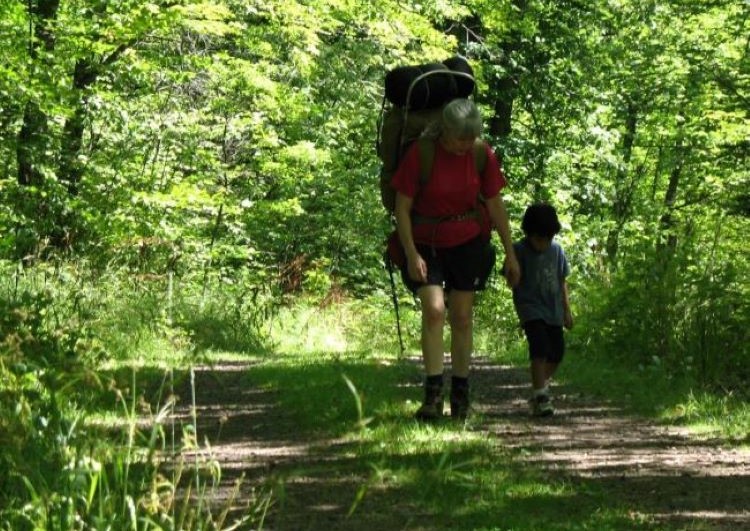I had to get out of the city--away from covid, away from the gaze and innocent demands of my husband and Max.
I drove to the ARC retreat center, just an hour north of the Twin Cities. I checked in with the cook, then headed for the tiny cabin that would be my hermitage. The moment I stepped into the woods, I felt embraced by its dappled light and shade, the scent of pine. I filled my lungs for the first time in months. I sensed time beginning to slow, my needs becoming fewer and simpler.
A few hours later, I was walking through a grove of white pines when a shaft of late-afternoon light lit the rusty flank of a doe. She stopped and turned toward me. I held my breath. It was like coming upon an angel, or a citizen of some secretive tribe. She gazed at me with both wariness and recognition, one people acknowledging another. For five minutes I watched as she stepped through the woods, lifting each leg high as if to navigate a treacherous patch of ground. She passed into the darkness, then back into the light, appearing and disappearing, like a holy flame.
The isolation was hard at first, and I read madly for hours so as not to face it—a novel from Henning Mankell’s Kurt Wallander series, Swedish crime noir at its best. It seemed an odd choice for what was meant to be a restorative retreat, but I found the clipped male voice soothing: concrete, laser-focused on a single crime, reasoning through a set of clues.
The main character Wallander was full of angst—exhausted, ill, fearing the cognitive declines of aging. He hid his diabetes, ashamed of it, and I understood, wrestling with my own diagnosis of “pre-diabetes.” I thought back over my own history of disordered eating, tracing it to the beginning, when at 14 I began to starve myself. And suddenly I burst into tears.
It was no good, I thought. My mother was not the innocuous “good” parent I’d idealized. She collapsed when I tried to come close, complained of depression and refused to take action, fell to pieces at any criticism. As a teen I had become her confidante, and in return, occupied the role of Golden Child: mature beyond my years, uncannily wise, and needing nothing. Starving. For the first time I saw deeply that I was loved not for myself, but for what I could give her. But I felt lighter. Some heavy energy I’d been carrying peeled off and fell away, like the sour husk of the green walnuts that had littered our childhood yard.
I felt scarily naked, taking my first steps into the forest, wearing nothing but myself.

No comments:
Post a Comment